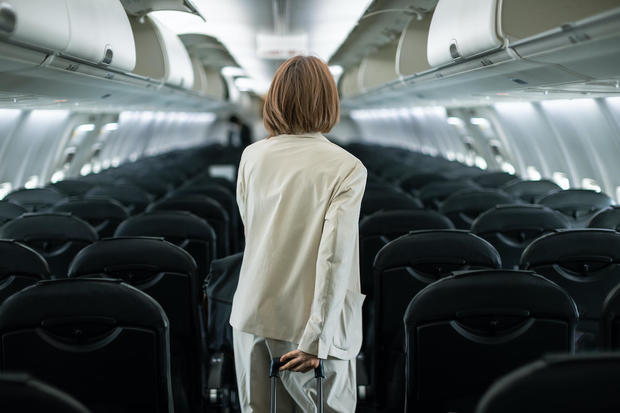Independent travel insurance vs. airline insurance: How to choose the best policy
Buying travel insurance through an airline while booking flights for your vacation is convenient. But are the benefits really worth the cost?
If you're planning to go that route make sure you understand exactly what you're paying for. It may seem easier to stick with the airline you typically use for insurance, but it may not necessarily be the best long-term decision for your wallet or peace of mind. The majority of travelers, especially those traveling internationally, choose comprehensive plans to cover all of their bases.
With a travel insurance comparison site like Squaremouth, you can view dozens of options with the click of a button. The process is just as easy — plus, you'll be able to compare benefits and prices in one window to get the best cost and coverage possible. Start your search now!
Shopping for independent vs. airline travel insurance
Most airlines offer travel insurance plans and encourage customers to purchase these plans through them. Some companies have the option to add a plan during checkout, while others may have to scroll to the bottom of the page or search for coverage on their website.
Airlines often work with a reputable partner to offer single-trip and annual plans, noting online that these come from a third-party — not the company itself. Some others also promote insurance plans tied to certain vacation packages. Each of these plans and packages varies, depending on the airline and your personal information (you should check with the airline to see if you can get any special offers or discounts if you're a valued member).
While it's easy to add travel insurance through the same airline you booked, it's important to understand the value of comparison shopping. Squaremouth says it's important to shop around to compare plans and prices from multiple providers to ensure you get the best deal.
"The majority of airlines that offer travel protection do so in partnership with a single provider, often limiting the coverage a traveler can choose from," James Clark, content specialist for Squaremouth, tells CBS News. "With fewer options available, it can be difficult for travelers to find a plan that meets their specific travel needs, provides adequate coverage and is priced affordably for their trip."
This makes it "tricky" to tell if premiums displayed match what other providers are charging for similar coverage, Clark adds.
For example, if you're searching for travel insurance on March 10, 2023, for two New Yorkers planning a $5,000 trip to Mexico at the end of April (April 24-30), then you'll be able to view dozens of comprehensive policies ranging from $72 to $282. If your priority is medical travel insurance, then you'll be able to see policies that offer $250,000 in medical evacuation and $75,000 in primary medical coverage for as low as $100. With the ability to compare hundreds of policies from vetted providers within seconds, you have a greater chance of slashing your costs.
What to watch out for
If you do choose to get insurance through an airline, then "keep an eye out for potential red flags within the policies they are presented," Clark warns. Here are two things to evaluate carefully:
- Cost: The price of travel insurance should be between 5% to 10% of your total trip costs, according to Squaremouth. If you're seeing prices above that, then you'll want to reevaluate the plan.
- Coverage: The type of coverage you're getting should be reviewed closely. You want to make sure you're getting the most bang for your buck. For example, medical coverage is critically important if you're traveling internationally since your health insurance — whether it's private or through the government — likely won't cover you overseas. A travel insurance policy should "include at least $50,000 in emergency medical and $100,000 in medical evacuation coverage if a traveler is going abroad," Clark says. You should also scan to see other additional perks like delays and lost luggage coverage that is included in your plan.
Ultimately, the more research and choices you have, the better. Even if you opt to buy from your airline, you should still consider doing an apples-to-apples comparison on a marketplace like Squaremouth, typing in your traveler and trip information to see if you can get the same benefits for less.
"Today's travelers have more travel insurance policies and providers at their disposal than ever before. Those that take the time to shop around and compare plans usually end up with the better deal. Though airlines do offer a convenient, one-stop option for travelers looking to protect their trip investment, the policies available may not be the best fit for all travel scenarios," Clark says.




